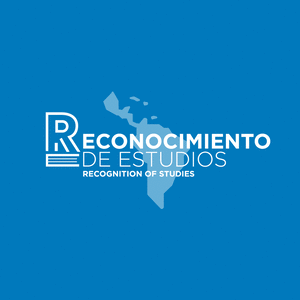Its fundamental mission is to contribute to the development and transformation of the tertiary education through the reinforcement of a work plan that, among other purposes, attempts to be an instrument to support the management of change and the required transformations in order that higher education in the region becomes an effective promoter of a culture of peace that allows to make viable - in an age of globalization - the human sustainable development based on principles of justice, equity, freedom, solidarity, democracy and respect of the human rights.
The Institute, beside taking part in the conceptualization, production and formulation of programs, objectives and strategies of the UNESCO as for higher education, particularly recounted to the regional area, contributes in narrow collaboration with the governmental and not governmental specializing agencies as well as the academic local community, to the attainment of the above mentioned objectives. This is accomplished essentially through networks and the production and diffusion of research studies on relevant aspects related to the sector of higher education in Latin America and the Caribbean, and the advice to the Members states in the formulation of public policies at national, sub-regional and regional level.
Vision
According to the participants of the Conference of Havana (1996) in Latin America and the Caribbean, it exists the urgent need to transform progressively the higher education.
In order that such task can be accomplished, it is needed an authority that harmonizes, promotes and coordinates the initiatives and demands generated by the tertiary education systems, their members and the actors involved to them, in order to establish the new consensus that places "the IES in a better position to answer to the present and future needs of the human sustainable development ".
Objectives
• To foster a closer cooperation between Member states of the region, their institutions and specialists in the field of higher education.
• To contribute in the improvement of the mutual knowledge of the tertiary education systems of the region, in order to facilitate their comparison with other regions of the world and to contribute in such a way to their development.
• To provide assistance to any Member state that requests the cooperation of the Institute for improving and developing its tertiary education systems and institutions, within the process of undergoing reforms.
• To promote and to support within the frame of the regional integration, a major mobility of professionals pertaining to establishments of higher education, particularly those from countries of minor relative development, with a view to using better the human and educational resources and helping to facilitate a major fluency in the recognition of studies, degrees and diplomas of higher education among the countries of the region and those of other parts of the world.
• To promote national and regional mechanisms aimed to strengthen the quality of higher education by means of processes of evaluation and accreditation.
• To promote the use of the new information and communication technologies in higher education institutions and to facilitate in the same ones the creation of " universities, laboratories and virtual libraries ", likewise as the creation of local, national and regional networks which contribute to a new dimension for the work of the higher education in the region.
The Institute will also contribute to the planning of, evaluation and follow-up of the programs of UNESCO regarding higher education, in cooperation with the UNESCO units and the programs approved by the Organization, and also with the diverse institutes, other governmental and non-governmental organizations, as well as with agencies of the United Nations System that realize activities of the same offer at national, sub-regional, regional, and international level.
Background
In fulfillment of the decision adopted by the 29a. General Conference of transforming the Regional Center for Higher Education in Latin America and the Caribbean (CRESALC) into UNESCO International Institute for Higher Education in Latin America and the Caribbean (IESALC), the Executive Board approved the bylaws and the financial regulatory provisions of the Institute.
During the transitional period 1998-1999, the IESALC focused its activities on the strengthening of its organizational infrastructure and on the beginning of several projects within the frame of the Action Plan for the Transformation of the Higher Education in Latin America and the Caribbean (Havana, Cuba, November, 1996).
There were carried out likewise several activities related to the "I World Conference in Higher Education" (Paris, October, 1998).









